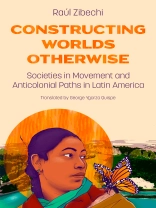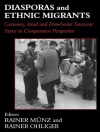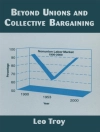A new collection from one of Latin America’s most dynamic radical thinkers—in the tradition of Frantz Fanon and Eduardo Galeano.
Constructing Worlds Otherwise sets itself against the recolonization of Latin America by one-dimensional, ethnocentric perspectives that permeate the North American left and block fundamental social change in the Global South. In a provocative mix of polemic and on-the-ground analysis, Raúl Zibechi argues that it is time for radicals in the Global North to learn from the people their governments have colonized and oppressed for centuries. Through a survey of the most marginalized voices across Latin America—feminists, the Indigenous, people of African descent, and inhabitants of urban favelas and shantytowns—he introduces the Anglo world to a range of critical perspectives and new forms of struggle.
For Zibechi, real change comes from “societies in movement, ” the people already fighting for their survival using egalitarian and traditional models of world-building, without the state, without official representatives, and without vanguards of political experts. His book contributes to global geographies of autonomous and anti-state thinking, with Zibechi placing his work in conversation with the ideological theorist of Kurdish resistance, Abdullah Öcalan, for a rich and dynamic survey of global movements of decolonization. Now more urgent than ever, this translation by George Ygarza Quispe comes at a time when the global left—struggling to expand its vision in a time of climate chaos and rising authoritarianism—finds itself at an impasse, desperate to animate and renew its critical imaginary.
Содержание
Introduction
Challenging Critical Thought from Below
Betting on Diversity
Rethinking Transition with Societies in Movement
CAUCA’s Indigenous Guards: Engines of Care and Transformative Change
Imaginary Dialogues with Öcalan: Updating Critical Thought
Notes
Index
Об авторе
George Ygarza Quispe is a popular educator, critical scholar, and organic researcher on resistance and autonomous social and political formations. He has worked in Peru and North America thinking through hemispheric undercurrents. He teaches at Pitzer College.












